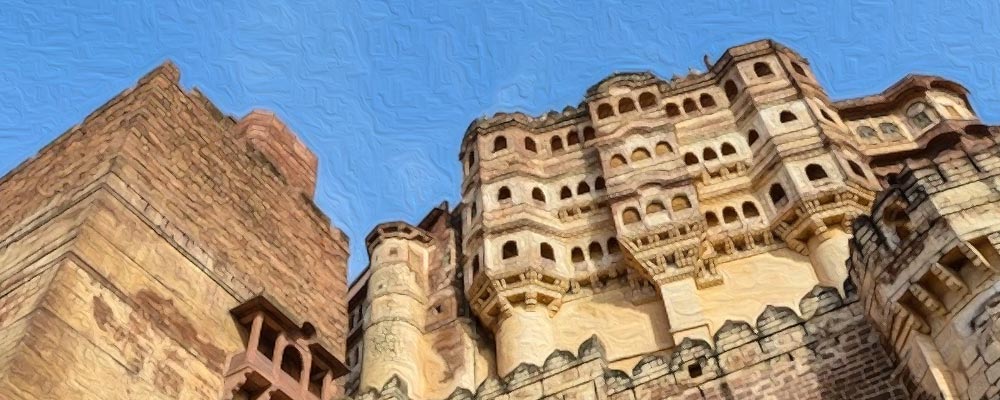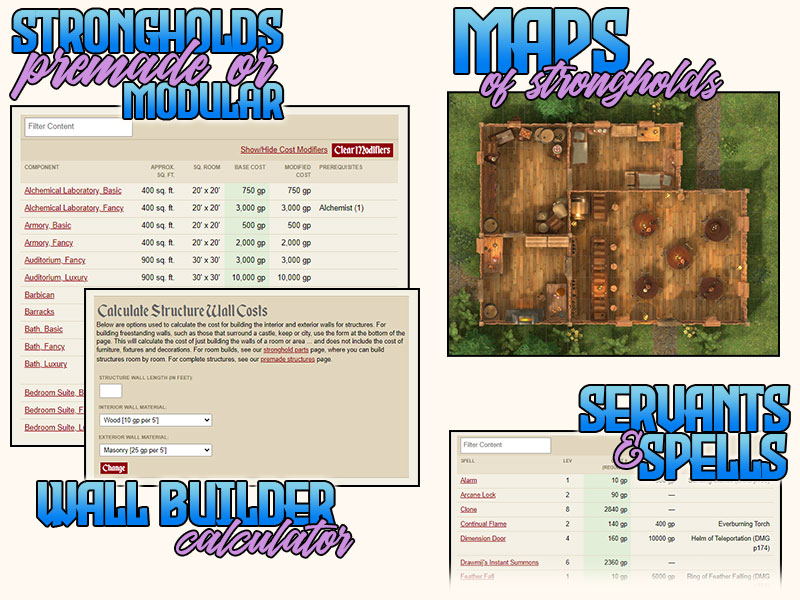Strongholds Content
The Gates Are Locked

Premium Content
Subscription Required
Our stronghold section is reserved for
premium subscribers! This guide provides players and DMs with floorplans and pricing for both premade structures, and modular builds. Need an inn with an alchemist's laboratory in the basement? How about a castle with a dungeon full of prison cells? The guide provides building costs, servant wages, upkeep, and details the descriptions of arcane spells that benefit a stronghold.
Plus, with a
premium subscription, you will get access to other premium content, such as our enormous list of Warlock Patrons and our Viscious Mockery insult database. And, there's more content coming as well.
If you have a subscription already, please login.
Otherwise, register and subscribe to get access!
Login Register
Premium Content Overview
Included with the premium membership - Stronghold Guide!


